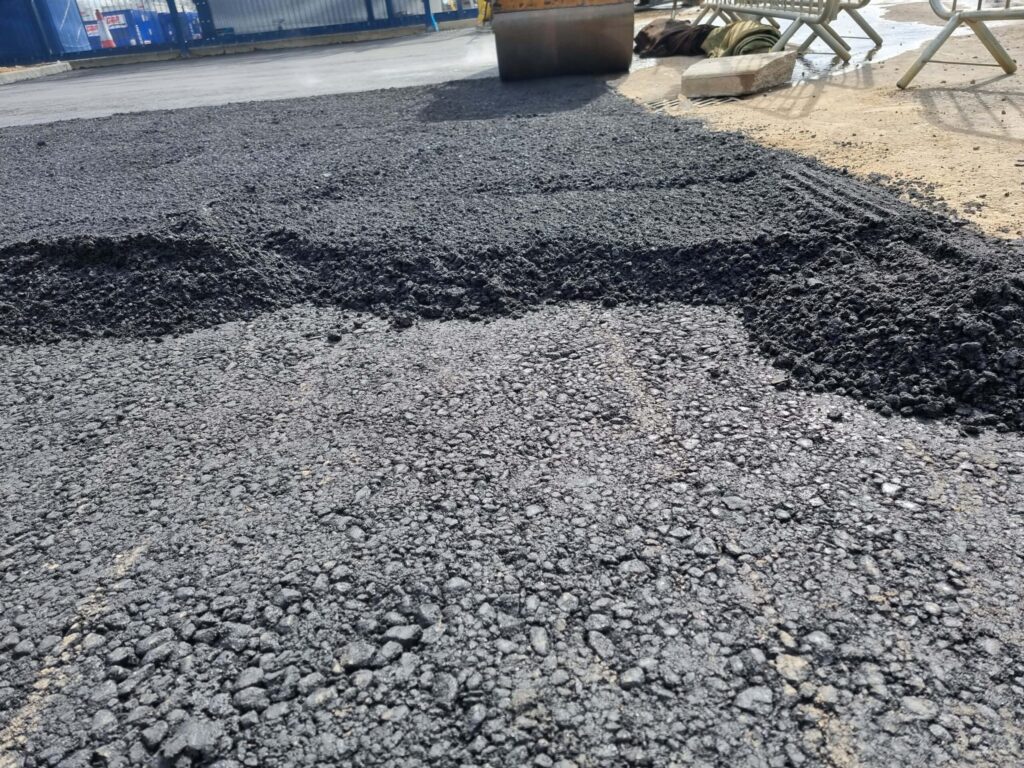Tarmac Recycling Innovations: Sustainability in Road Construction
Introduction: In today’s world, sustainability is at the forefront of many industries, and road construction is no exception. As we aim to reduce our environmental footprint and preserve valuable resources, innovations in tarmac recycling have emerged as a key solution in the quest for sustainable road infrastructure. In this blog post, presented by Lowestoft Driveway Solutions, we’ll explore the innovative tarmac recycling methods that revolutionise road construction while reducing waste and environmental impact.
The Challenge of Traditional Road Construction
Traditional road construction uses virgin materials, such as natural aggregates and bitumen, which are finite resources. This method depletes valuable materials, generates significant waste, and contributes to carbon emissions. Additionally, the disposal of old road surfaces poses environmental challenges.
Enter Tarmac Recycling
Tarmac recycling, known as asphalt recycling, aims to address these challenges by reclaiming and reusing existing road materials. This innovative approach offers several notable benefits:
1. Resource Conservation
Tarmac recycling reduces the demand for new materials by utilising the existing road surface. This not only preserves natural resources but also extends the lifespan of roads, reducing the need for frequent reconstruction.
2. Energy Savings
Compared to traditional road construction, recycling tarmac requires less energy. This reduces greenhouse gas emissions and contributes to a more sustainable and environmentally friendly construction process.
3. Waste Reduction
Traditional road construction generates significant waste, including old road surfaces. Tarmac recycling significantly reduces this waste stream by reusing materials from the existing road, minimising the need for landfill disposal.
Innovations in Tarmac Recycling
Several innovative methods have emerged to make tarmac recycling even more effective and sustainable:
1. Cold Recycling
Cold recycling involves reclaiming and mixing the existing asphalt with foamed bitumen or cement to create a new road surface. This method eliminates the need for heating and reduces energy consumption.
2. Warm Mix Asphalt
Warm mix asphalt (WMA) technologies allow for lower mixing and compaction temperatures than traditional hot mix. This not only conserves energy but also reduces greenhouse gas emissions during construction.
3. Rejuvenators and Additives
Rejuvenators and additives are used to restore the quality of aged asphalt, extending its lifespan and improving durability. This approach maximises the use of existing materials.
Conclusion: Tarmac recycling innovations transform road construction into a more sustainable and eco-friendly industry. These methods play a crucial role in building a greener future for our infrastructure by conserving resources, reducing waste, and minimising energy consumption.
Call us on: 01502 447 997
Click here to find out more about Lowestoft Driveway Solutions
Click here to complete our contact form and see how we can help with your driveway needs.

